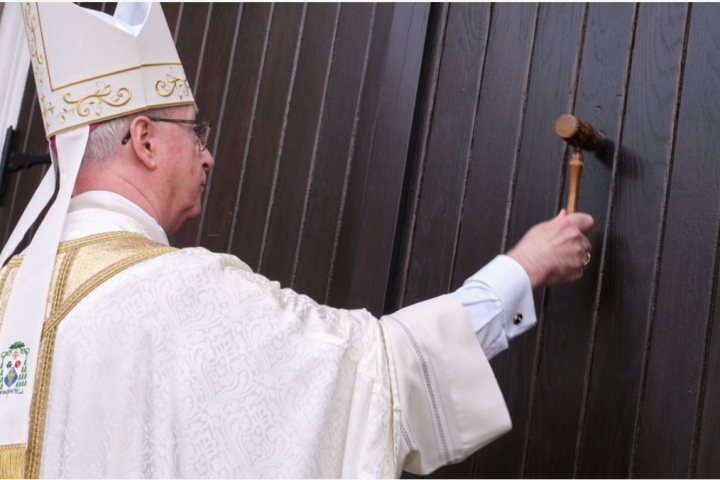As the world navigates the complexities of the climate change issue, the implementation of a carbon tax has become an unavoidable reminder that political and practical choices and actions often have complex and unforeseen consequences. They can, for example, have impacts not only on the environment, but on individuals who have to deal with the consequences of those choices and actions.
The Canadian government’s rationale for a carbon tax is that it addresses the costs associated with the effects of climate change. In short it is a “price on carbon pollution in Canada.” The intention of the tax is to create a dent in emissions and thereby help to shape people’s behaviour, since the more energy costs rise, the less they’ll be consumed, resulting in a decrease in carbon emission rates.
Many political leaders agree. Others say the tax is unfair, ineffective, and puts unnecessary burdens on the working class. In the case of Saskatchewan, politicians say the federal government is showing favoritism to one area of the country over another with the exemption on home heating oil it provided in the Atlantic provinces.
With 90 per cent of Saskatchewan households using natural gas to heat their homes, Premier Scott Moe directed his province’s energy ministry to stop collecting carbon tax on natural gas beginning Jan. 1.
Others, however, believe taxation is needed to battle climate change, an issue that many Catholics and people of goodwill view as a crucial moral issue that needs to be addressed, the argument being that if we do nothing, we are putting future generations at risk.
The resulting carbon tax debate raises challenging questions about how to balance our duties toward environmental stewardship and care for our common home with the principle of solidarity with our fellow humans.
Catholic Teaching
The Compendium of the Social Doctrine of the Church, a brainchild of Pope Saint John Paul II, was published in 2004 by the Pontifical Council for Justice & Peace. Read together with and informed by the Gospels, the Old Testament, the Catechism, and subsequent papal documents, it provides a comprehensive statement of Catholic Social Teaching, touching on all aspects of social life, from the family to International Relations, and from the sanctity of life to the environment, the economy, human rights, civil liberties, and obligations; the economy, good governance, and social institutions such as the Church, schools, governments, and civil society. (https://catholicconscience.org/catholiccivics/)
Chapter Seven of the Compendium explains that:
Taxes and Public Spending as Tools for Shaping Society
355. Tax revenues and public spending take on crucial economic importance for every civil and political community. The goal to be sought is public financing that is itself capable of becoming an instrument of development and solidarity. Just, efficient and effective public financing will have very positive effects on the economy, because it will encourage employment growth and sustain business and non–profit activities and help to increase the credibility of the State as the guarantor of systems of social insurance and protection that are designed above all to protect the weakest members of society.
Public spending is directed to the common good when certain fundamental principles are observed: the payment of taxes [739] as part of the duty of solidarity; a reasonable and fair application of taxes;[740] precision and integrity in administering and distributing public resources.[741] In the redistribution of resources, public spending must observe the principles of solidarity, equality and making use of talents. It must also pay greater attention to families, designating an adequate amount of resources for this purpose.[742]
Civic Cooperation
420. Cooperation, even in its less structured forms, shows itself to be one of the most effective responses to a mentality of conflict and unlimited competition that seems so prevalent today. The relationships that are established in a climate of cooperation and solidarity overcome ideological divisions, prompting people to seek out what unites them rather than what divides them.
Natural Law and the Limits of Civic Obedience
400. Recognizing that natural law is the basis for and places limits on positive law means admitting that it is legitimate to resist authority should it violate in a serious or repeated manner the essential principles of natural law. Saint Thomas Aquinas writes that “one is obliged to obey … insofar as it is required by the order of justice.” [823] Natural law is therefore the basis of the right to resistance.
There can be many different concrete ways in which right [of resistance] may be exercised; there are also many different ends that may be pursued. Resistance to authority is meant to attest to the validity of a different way of looking at things, whether the intent is to achieve partial change, for example, modifying certain laws, or to fight for a radical change in the situation.
Points for reflection:
- Which of the principles, values, and virtues of Catholic social doctrine are relevant to this issue? (https://catholicconscience.org/catholiccivics/)
For example, does the application of exemptions to carbon tax for fuels which are used more in one part of a country than another touch upon the principle of solidarity – a Catholic term meaning that ‘since we are all parts of the one living body of Christ, what hurts them also hurts us’? Why or why not?
Would the Government of Saskatchewan be justified in refusing its legal duty by retaining a tax that has been collected in the name of the common good? Or would retention be an appropriate use of its right to resist what it considers and unfair taxation law?
Might the principle of subsidiarity – that individuals and lower groupings of society should be encouraged and enabled to take responsibility for themselves, rather than relying on higher or larger groupings – help to inform this analysis? Would provinces be better positioned to come up with their own incentives to reduce carbon emissions than the federal government?
What relevance, if any, does the virtue of prudence bear on such a topic? Section 1806 of the Catechism of the Catholic Church defines prudence as “the virtue that disposes practical reason to discern our true good in every circumstance and to choose the right means of achieving it … it guides the other virtues by setting rule and measure. It is prudence that immediately guides the judgment of conscience.”
In situations, for example, where risks associated with an issue are not clearly defined and no one certain correct answer is apparent, might prudence suggest that perhaps the safest course might be the best one to follow? Would such reasoning apply to continued addition of carbon and other gasses to the atmosphere? What might future generations, looking back to today, discern as a prudent choice for us in the here and now?







